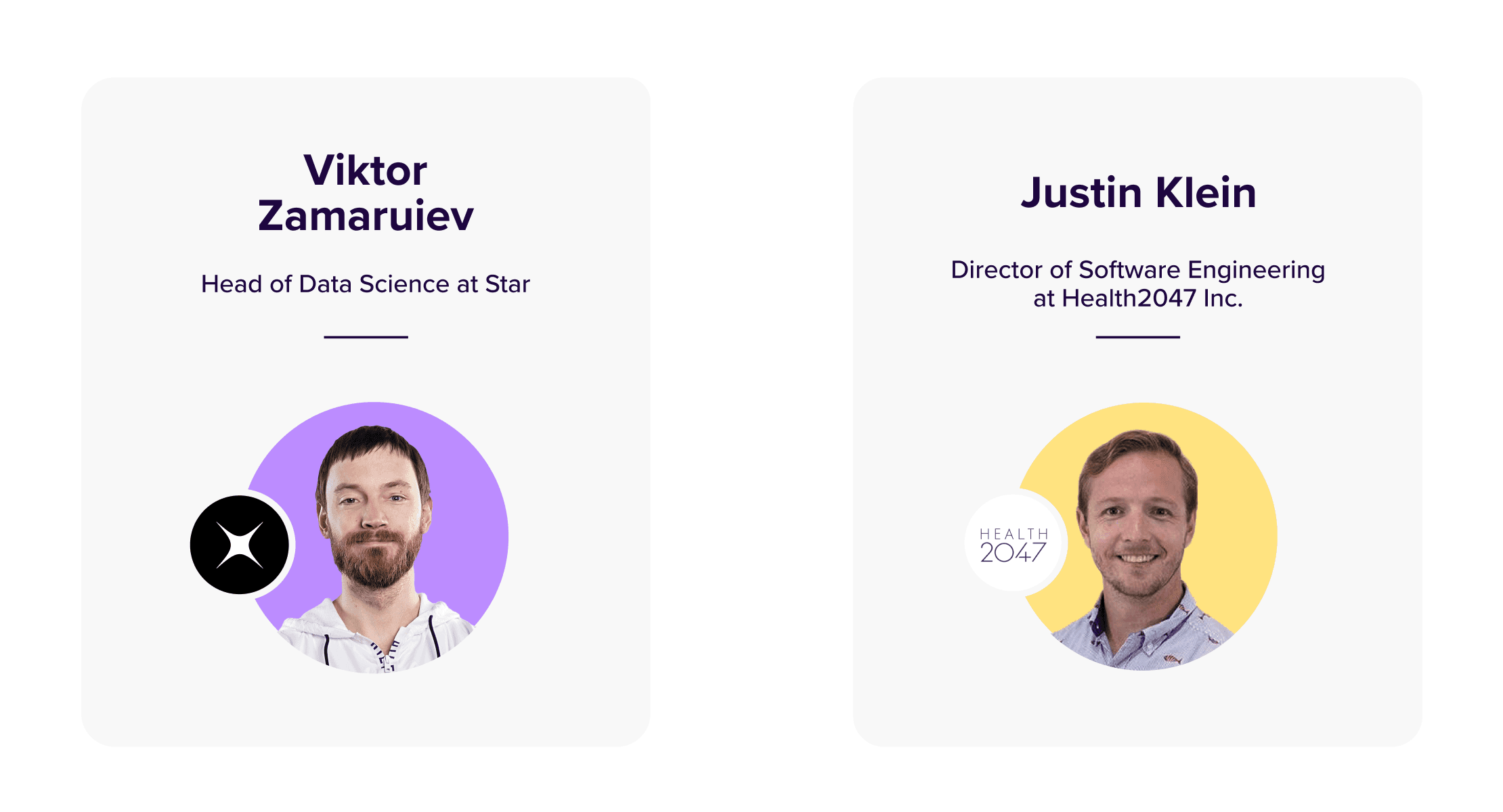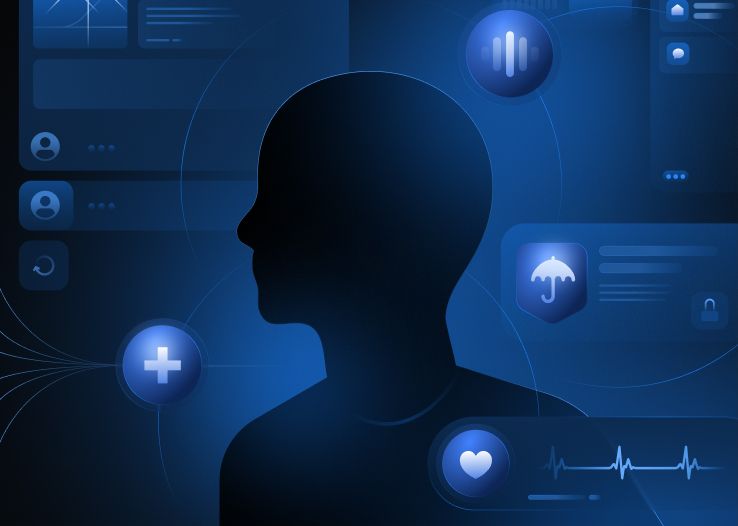
Artificial Intelligence (AI) has been an explosion of innovation. Nowhere is this more true than in healthcare. However, there is no one-size-fits-all approach to the development and implementation of AI technologies in the vastly heterogeneous healthcare systems around the world.
Describing both the challenges and opportunities of AI in healthcare, the expert podcast guests shared these insights:
- AI adoption doesn't have to be on a grand scale. With such radical new technology, there's a tendency to assume it must be used for large-scale purposes. Viktor Zamaruiev described how healthcare providers with limited resources can begin with "small portions of algorithms or applications to make sure that you have the right market fit" for your organization's needs before undertaking broader projects.
- Lack of data standardization remains a challenge. Since healthcare data is "protected for privacy reasons, and US HIPAA compliance, it's often very difficult to move it around…[because organizations] really did focus on specific workflows and provider needs," making it difficult to draw insights and thus build AI solutions. There is a lot of data but now we need to "get it into the systems where it’s actionable."
- NLP is changing the game. NLP or natural language processing enables computers to read, understand, and interpret human language. Justin Klien explained how "some of the most successful startups right now are actually using that NLP to standardize the datasets in a dynamic fashion and basically solve some of those accuracy and data scalability problems that are inherent in the system."
- Removing boundaries between business and engineering teams. Victor Zamaruiev described the "huge gap between business and engineering or even R&D teams." To solve this, we should "blend them together...for example, even sit in the same room...and work hand in hand. In these cases, domain experts can be supplemented with software developers and data scientists and a gradually diverse team," creating better results.
Subscribe on Apple Podcast | Subscribe on Spotify
AI solutions in the world of tomorrow
AI has already proven itself effective in healthcare. As more players enter the market, innovators will address implementation challenges through a variety of holistic strategies, including:
- The development of comprehensive frameworks. Justin Klien noted, "One of the main things, is to first really think about how you present that governance and demonstrate the pipelines and the transfer of the data and the reasons behind them, and whenever you can minimize the features that you pull into the cloud or combine those features into some sort of probability."
- COVID-19's silver lining. Victor Zamaruiev illustrated how "COVID-19 has united researchers around the world…these recent changes, interoperability rules, show that access to data will be simplified and more standardized, giving more democratic access to health data" powering more AI innovation.
- The symbiotic relationship between AI and telehealth. The increased prevalence of telehealth will largely rely on the adoption of AI-powered technologies. Justin Klein forecasted that in the next 10 years, "a huge increase in accessibility from telemedicine to being able to use our cameras on our phones to help with diagnostics and take vital [PC1] measurements…[furthering] diagnostic efforts and accessibility to care, treatments, and opportunities."
- Digital medical testing: Victor Zamaruiev predicts that in 10 years, "clinical trials and research for drugs will be made online without the need to make any trials on animals or humans. You can just simulate what kind of disease you're looking for and what kind of chemicals or substances you might have… [and] do research using extremely flexible computational power available in the cloud."
AI is driving massive changes in healthcare. Listen to the podcast now to learn more about artificial intelligence and how healthcare providers can overcome challenges to create viable AI-powered solutions.








